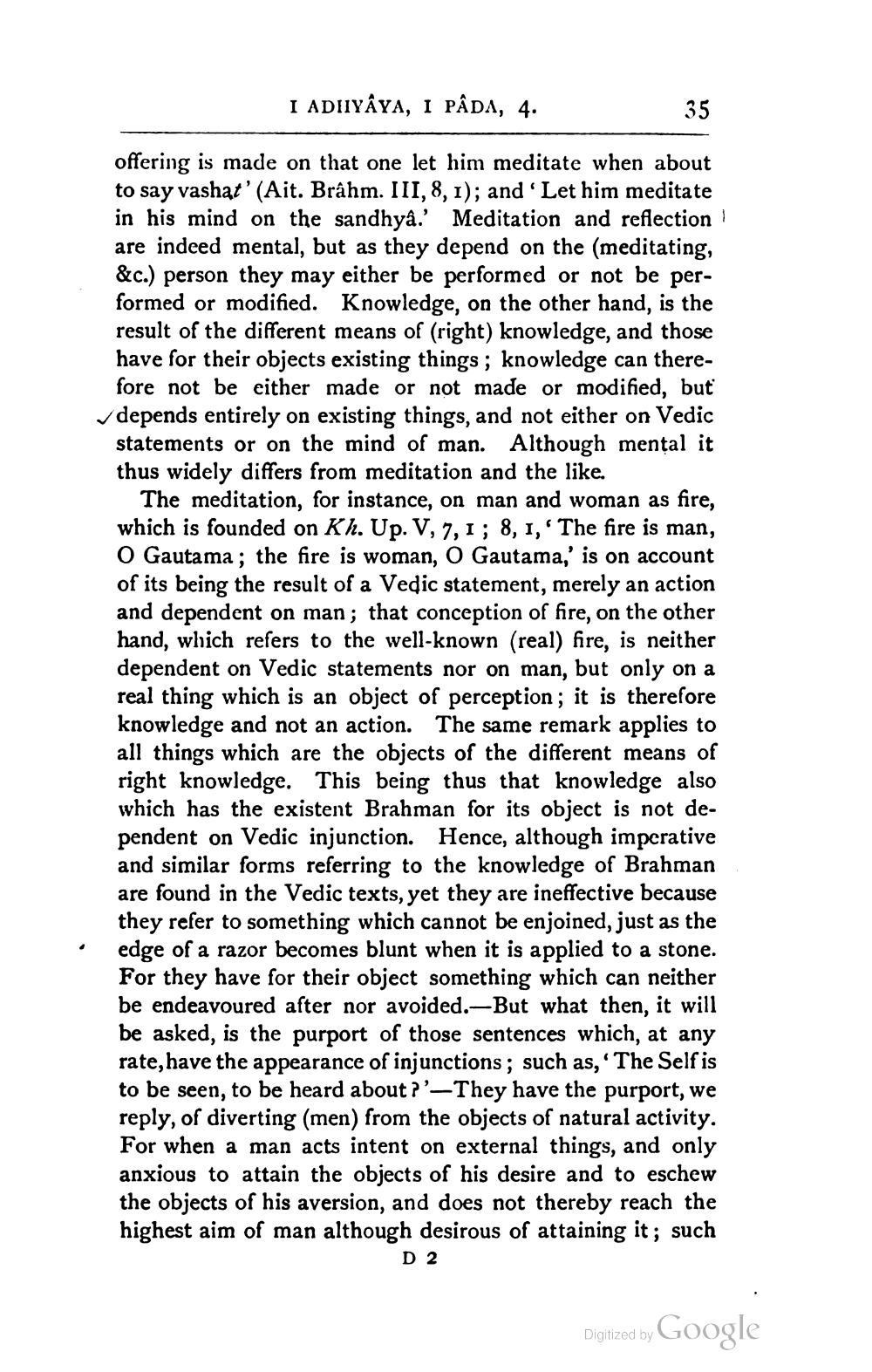________________
I ADIIYÂYA, I PÂDA, 4.
35
offering is made on that one let him meditate when about to say vashat' (Ait. Brâhm. III, 8, 1); and 'Let him meditate in his mind on the sandhyâ.' Meditation and reflection are indeed mental, but as they depend on the (meditating, &c.) person they may either be performed or not be performed or modified. Knowledge, on the other hand, is the result of the different means of (right) knowledge, and those have for their objects existing things; knowledge can therefore not be either made or not made or modified, but depends entirely on existing things, and not either on Vedic statements or on the mind of man. Although mental it thus widely differs from meditation and the like.
The meditation, for instance, on man and woman as fire, which is founded on Kh. Up. V,7,1; 8, 1, 'The fire is man, O Gautama; the fire is woman, O Gautama,' is on account of its being the result of a Vedic statement, merely an action and dependent on man; that conception of fire, on the other hand, which refers to the well-known (real) fire, is neither dependent on Vedic statements nor on man, but only on a real thing which is an object of perception; it is therefore knowledge and not an action. The same remark applies to all things which are the objects of the different means of right knowledge. This being thus that knowledge also which has the existent Brahman for its object is not dependent on Vedic injunction. Hence, although imperative and similar forms referring to the knowledge of Brahman are found in the Vedic texts, yet they are ineffective because they refer to something which cannot be enjoined, just as the edge of a razor becomes blunt when it is applied to a stone. For they have for their object something which can neither be endeavoured after nor avoided. But what then, it will be asked, is the purport of those sentences which, at any rate, have the appearance of injunctions, such as,'The Self is to be seen, to be heard about ?'—They have the purport, we reply, of diverting (men) from the objects of natural activity. For when a man acts intent on external things, and only anxious to attain the objects of his desire and to eschew the objects of his aversion, and does not thereby reach the highest aim of man although desirous of attaining it; such
D2
Digitized by Google




